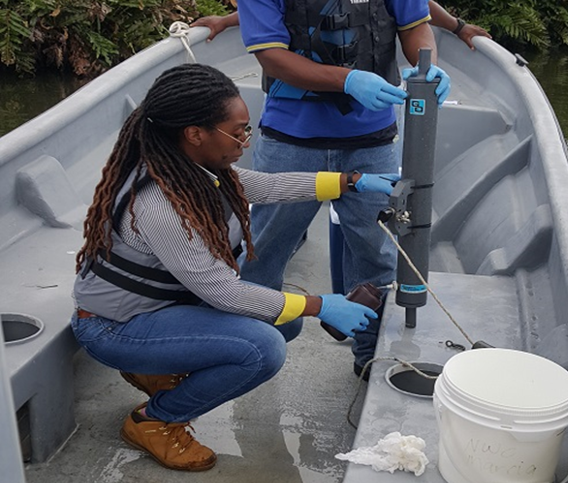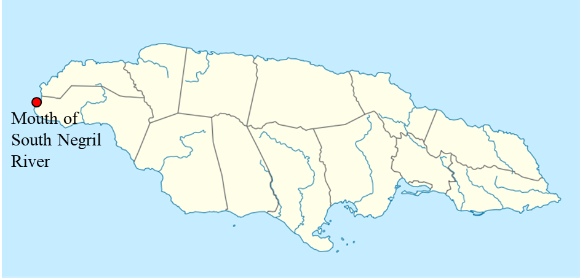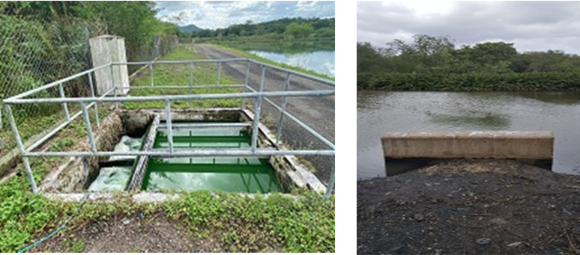MSc project feature: Cordelia Samuel’s characterization of Wastewater Stabilization Ponds effluent discharge and its impact on the South Negril River in Jamaica.

This is the fifth special news feature of our MSc students in Freshwater Quality Monitoring and Assessment and their research projects. On this occasion, we invite you to get to know Cordelia Samuel’s project.
Cordelia carried out her research in Westmoreland, Jamaica. Her project involved characterizing the discharge from the Negril Wastewater Stabilization Ponds (WSP) and carrying out a short-term Impact Assessment on the water quality of the South Negril River.

Approximate location of the mouth of the South Negril River in Jamaica (NordNordWest/Wikipedia. Licenced under CC BY-SA 3.0 de).
The National Water Commission (NWC) in Jamaica operates the WSPs and is the statutory body responsible for treating wastewater and delivering potable water to Jamaicans. The NWC and the National Environmental Planning Agency (NEPA) provided Cordelia with approximately twenty years of water quality information for the effluent discharge and different sampling points along the river.
The WSPs were built in 1997 and they were rehabilitated in 2010. Cordelia collated the data and the resulting database allowed for the comparison of various water quality parameters between different periods of time: before the construction of the WSPs, after their construction, and the early and late post-rehabilitation periods.

Effluent Sampling Point (left) and effluent discharge pipe to the South Negril River (right)
In addition, Cordelia tested various physicochemical and microbiological parameters over a six-week period during the dry season of 2020 in both the effluent and at different sampling points along the South Negril River. Although the sampling activities were also initially planned for the wet season, Covid-19 prevented any further exploration of this option.
The discharge effluent met the regulatory standards of pH but had high levels of other parameters with regulatory standards. The original design of the WSPs was to reduce the biological oxygen demand and faecal coliform levels of the wastewater. It was not designed for the current effluent standards, something seen globally in many wastewater facilities!
Cordelia found that the South Negril River’s water quality was impacted by the effluent. Cordelia’s research also suggested other sources of pollution to the South Negril River such as the peat-laden riverbed, nearby agricultural land and illegal fishing.
Monitoring of point sources of pollution in the South Negril River, like the effluent discharge of these WSPs, will guide management practices to improve the water quality of the river and the coastal sea of Negril and its touristic coral reefs.
Congratulations to Cordelia for all the hard work!
UNEP GEMS/Water Capacity Development Centre
UNEP GEMS/Ionad Forbartha Acmhainneachta Uisce
Contact us
Environmental Research Institute, Ellen Hutchins Building, University College Cork
